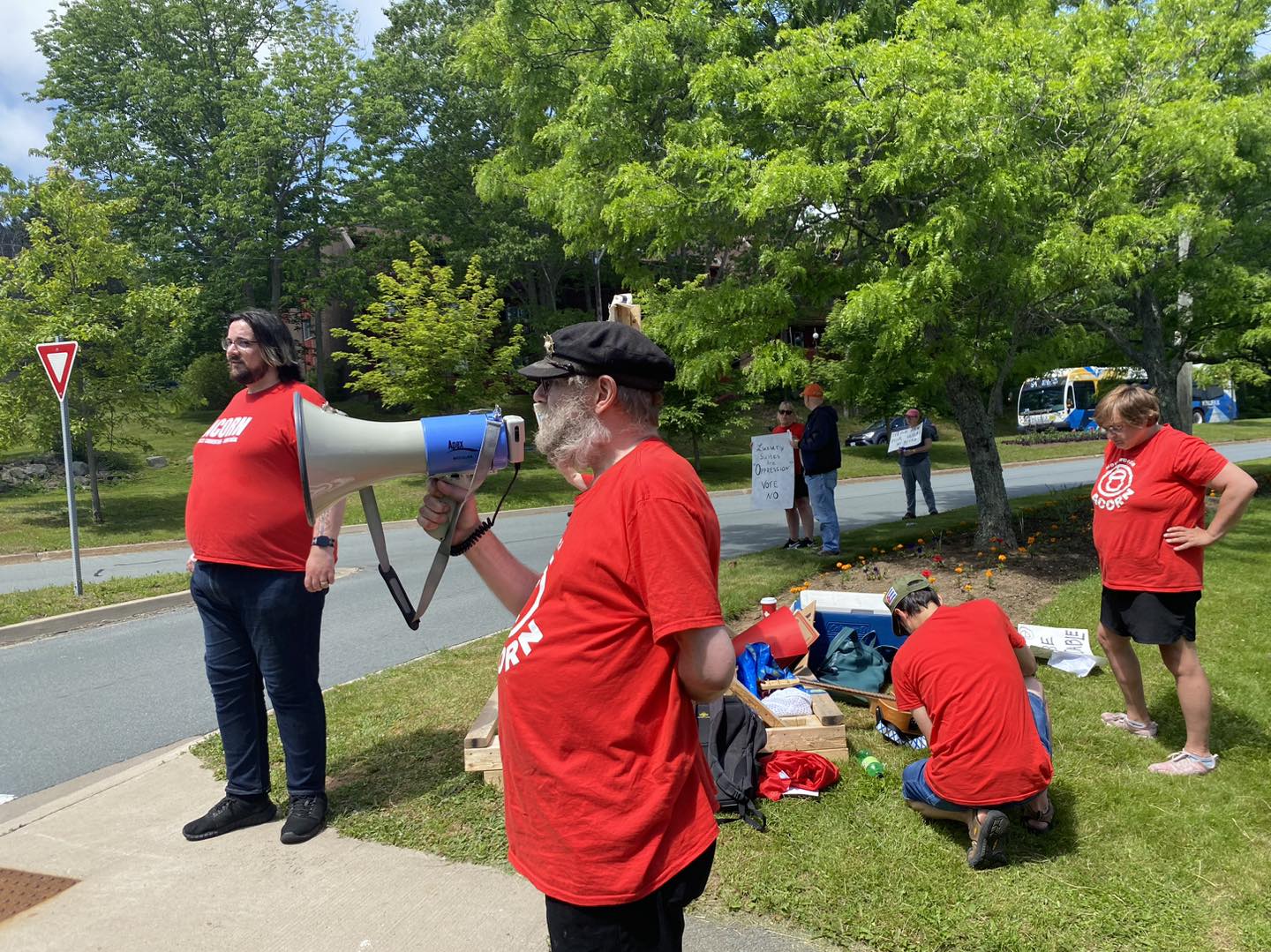Global News: Nearly half the applicants on N.S. public housing waitlist are seniors
Posted October 16, 2023
Pat Donovan knows one thing for sure. If it wasn’t for finding a roommate, he wouldn’t be able to afford his Halifax apartment.
And even after that, the 65-year-old says finances are tight.
“If I hadn’t found a roommate, I wouldn’t have been able to survive. For the simple fact that I wouldn’t have been able to afford the rent. Being a diabetic makes it especially hard,” he said.
At one point, money was so scarce, Donovan went a full year without taking his diabetes medication because he wasn’t able to afford the co-pay.
“Most seniors are on fixed incomes, you know. If you have to live off a Canada Pension, it’s very hard. Very hard,” he said.
Donovan, and his roommate Marjorie Pemberton, 67, are both members of ACORN Nova Scotia, a community group that advocates for low and moderate-income people.
While they’re thankful to have each other, they also say their home isn’t adequate.
“We need accessibility. We go up three flights of stairs and carry everything with us. I can’t carry anything upstairs, I carry my purse and myself,” said Pemberton.
However, their financial situation and lack of affordable housing doesn’t give them many options.
“It’s pretty scary, $2,000 a month doesn’t go very far. If your rent is $1,200 a month, it doesn’t leave you enough for anything, let alone medication and food,” she added.
Seniors being failed: advocate
Accessing affordable and appropriate housing is a struggle for many seniors.
Public housing from the province is one option. It’s owned and operated by the government, with rent based on a household’s income rather than market rates.
For seniors, rent is charged at 30 per cent of gross household income.
Currently, two-thirds of residents in public housing are seniors, according to Housing Minister John Lohr.
And many more are still waiting to get in.
A spokesperson for the Nova Scotia Provincial Housing Agency — a Crown corporation created in 2022 — confirmed that the latest data shows 48 per cent of applicants on the public housing waitlist are seniors.
According to Bill VanGorder, the chief operating officer for the Canadian Association for Retired Persons (CARP), those figures indicate seniors’ needs aren’t being prioritized.
Last month, the province announced it plans to build 222 new public housing units — the first time Nova Scotia has added to its stock in nearly three decades.
But VanGorder said those units just aren’t enough, and more action is needed– not just talk.
“We need even more expansion in that area, or we’re going to have more and more seniors on the street,” he said.
VanGorder points out only 30 per cent of Nova Scotians have a pension from their workplace, so seniors often have to rely on their own savings, and government supplements.
“More and more, we’re finding that older Nova Scotians don’t have enough money to live on,” he said. “When we survey our members (…) although health concerns continue to always be there, their number one concern is financial security. Are they going to outlive their money?“
While speaking to reporters Thursday, Minister Lohr said the province is “very concerned” about seniors unable to live on fixed incomes.
In addition to being “committed to having seniors in public housing,” Lohr said he wanted to help seniors stay in their own homes.
“That’s one thing that we see when we’re in an inflationary time. It’s very hard on people on a fixed income,” he said. “We’re very aware of that and we just made a change a week ago to our rental supplement program.”
The criteria used to determine seniors’ eligibility for supplement and the formula for the amount received is what was changed. The criteria and formula had used 95 per cent of the average market rent, and now it uses 100 per cent of the average market rent in the area.
However, without the housing stock, the problem of finding appropriate and affordable housing remains.
“It’s very disheartening to think that we treat our seniors, our people who have given so much to the province and the country, and now we’re forcing them to live in unacceptable accommodations,” said VanGorder.
— with files from Global News’ Megan King
****
Article by Rebecca Lau for Global News

